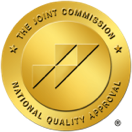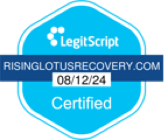Overview:
- Benzodiazepine Overview
- Withdrawal Symptoms and Duration
- Risks of Withdrawal
- Treatment and Management
In the landscape of medication dependency, benzodiazepines stand out due to their common prescription and potential for addiction. Understanding the withdrawal process from these substances is critical for anyone considering or beginning their journey to sobriety. Here, we answer some pressing questions regarding the withdrawal of benzodiazepines.
What Are Benzodiazepines?
Benzodiazepines, often referred to as “benzos,” are a class of psychoactive drugs prescribed primarily for treating conditions like anxiety, insomnia, seizures, and muscle spasms. They work by enhancing the effect of the neurotransmitter GABA in the brain, which results in sedative, hypnotic (sleep-inducing), anxiolytic (anti-anxiety), anticonvulsant, and muscle relaxant properties.
What is “Benzo Belly”?
‘Benzo belly’ is a term used to describe the uncomfortable gastrointestinal symptoms that some individuals experience during benzodiazepine withdrawal. These symptoms can include abdominal pain, bloating, and digestive disturbances. It’s one of the numerous potential physical reactions to reducing or stopping benzodiazepine intake.
What Are the Withdrawal Symptoms?
Withdrawal of benzodiazepines symptoms can vary in intensity and duration, but commonly include anxiety, insomnia, headaches, palpitations, muscle pain, tremors, and sweating. In more severe cases, individuals may experience hallucinations, seizures, or psychosis. The onset and progression of these symptoms can be quite alarming, which is why medical supervision is crucial.
How Long Do Benzo Withdrawals Last?
The duration of benzo withdrawals can depend on several factors, including the length of use, the dosage, and the individual’s metabolism. Withdrawal symptoms can appear as early as a few hours after the last dose and may last from several days to weeks. In some cases, individuals may experience prolonged withdrawal symptoms, known as post-acute withdrawal syndrome (PAWS), which can last for months.
Are These Withdrawals Life-Threatening?
Yes, benzodiazepine withdrawal can be life-threatening. Withdrawal seizures benzodiazepines are one of the most severe risks during the detox process. Because of the danger associated with these seizures, as well as the potential for delirium and psychosis, withdrawal should be managed by healthcare professionals.
What Are Common Signs of Withdrawal?
Signs of withdrawal from benzodiazepines can be both psychological and physical. They often include severe anxiety, restlessness, irritability, sleep disturbances, and physical symptoms like sweating, heart palpitations, and shaking. It’s important to monitor these signs closely, as they can indicate the severity of the withdrawal.
What Is Involved in Benzodiazepine Withdrawal Treatment?
Withdrawal benzodiazepines treatment often involves gradual tapering off the drug, sometimes using longer-acting benzodiazepines to minimize withdrawal symptoms. Additional medication may be used to treat specific symptoms like insomnia or anxiety, and in some cases, a detoxification process in a medical facility is recommended.
Seeking Help and Treatment
Understanding the complexities of benzodiazepine withdrawal is essential for anyone who is considering reducing their use or seeking to become clean. It’s clear that due to the severity of potential symptoms, medically supervised withdrawal is the safest route.
If you or a loved one is dealing with benzodiazepine addiction and considering withdrawal, Rising Lotus is here to support you. Our expert team provides comprehensive care that addresses the physical and psychological challenges of benzo withdrawal. We offer tailored treatment plans that prioritize your health and comfort, ensuring the best possible outcome for your recovery journey.
The road to recovery can be daunting, but with the right help, it’s a path to a new beginning. Reach out to Rising Lotus at (866) 868-0014 to learn more about our services and how we can help you safely manage the withdrawal from benzodiazepines. Your health and well-being are our top priorities, and we’re here to guide you through every step towards a benzo-free life.




























